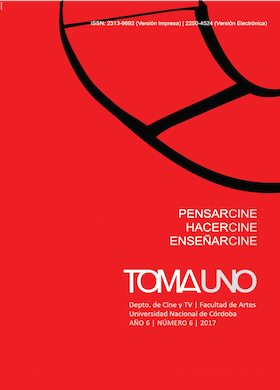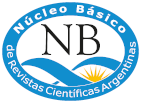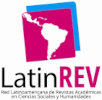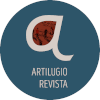Third World Cinematheque. A little-known film library
DOI:
https://doi.org/10.55442/tomauno.n6.2018.20866Keywords:
Documentary Cinema, Semanario Marcha, C3MAbstract
The Third World Cinematheque (C3M) is a phenomenon that has been very little studied in Uruguay. Founded on November 8, 1969, this movement made up of young intellectuals belonging to the 60's generation, sees cinema as part of a political militancy that falls within the coordinates of the Uruguayan left wing. Although was extended for a short period of time (November 1969-July 1974), through its films and the publication of the Cinema of the Third World magazine, it left a mark in the cinema and Uruguayan critics. It will no longer be an idea in the head and a camera in the hand, as Glauber Rocha holds, but a camera in the hand that, like a machine gun, makes the cinema a place of action and political struggle. As time passed, the political cinema, elaborated by the C3M was forgotten due to the political conditions generated by the coup d'état; However, within the framework of Uruguayan cinema, it is relevant to analyze, not only its films but also its theoretical essays, testimonies and analysis about the cinematographic aspects that underlie the institution as well as the New Latin American Cinema. This work aims to discuss the role played by the C3M in the early 70's and the way in which the cinema developed by this collective became part of the country's social and cinematographic memory.
Downloads
References
Crawford, P.; Turton, D. (1992). Film as Ethnography. Manchester, UK: University Press.
Jacob, L. (2003). Marcha: de un Cine Club a la C3M; en Marcha y América Latina de Moraña, M.; Machín, H., USA: Universidad de Pittsburgh, Instituto Internacional de Literatura Iberoamericana.
Nichols, B. (2007/2008). Cuestiones de ética y cine documental, en JOSEP, M. C. y JOSETXO CERDÁN (eds.), Después de lo real, Archivos de la Filmoteca, Vol. 1 (57-58), Valencia, España: Instituto Valenciano de Cinematografía.
Plantinga, C. (1997). Rhetoric and representation in nonfiction film, Cambridge, UK: University Press.
AA.AA. (Marzo 1972). Cuaderno De Cine Cubano. La Habana, Cuba.
AA.AA (1969). Mañana se inaugura la Cinemateca del Tercer Mundo, en Semanario Marcha, 07 de noviembre de 1969, pág. 25.
Alfaro, H. (1968). La larga marcha del festival, en Semanario Marcha, 27 de diciembre de 1968, pág. 31.
Alfaro, H. (1969). Presentación, en revista Cine del Tercer Mundo; nº 1, Montevideo, Uruguay Publicación de la Cinemateca del Tercer Mundo.
Álvarez, S. (1970). Reportaje a Santiago Álvarez, en revista de Cine del Tercer Mundo; nº 2, Montevideo, Uruguay, Publicación de la Cinemateca de Tercer Mundo.
Caprile, O. (1970). El nuevo cine latinoamericano, en revista de Cine del Tercer Mundo; nº 1, Montevideo, Uruguay, Publicación de la Cinemateca de Tercer Mundo.
Godard, J.L. (1970). Godard por Solanas, Solanas por Godard, en revista de Cine del Tercer Mundo; nº 1, Montevideo, Uruguay, Publicación de la Cinemateca de Tercer Mundo.
León Frías, I. y Gonzaléz Norris, A. (1970). El cine de 4 minutos. Entrevista con Mario Handler, en Hablemos de Cine N° 52, marzo-abril 1970, pág. 48.
Downloads
Published
How to Cite
Issue
Section
License
Copyright (c) 2018 Luis DufuurThis work is licensed under Creative Commons Attribution-NonCommercial-NoDerivs 2.5 Argentina .


































